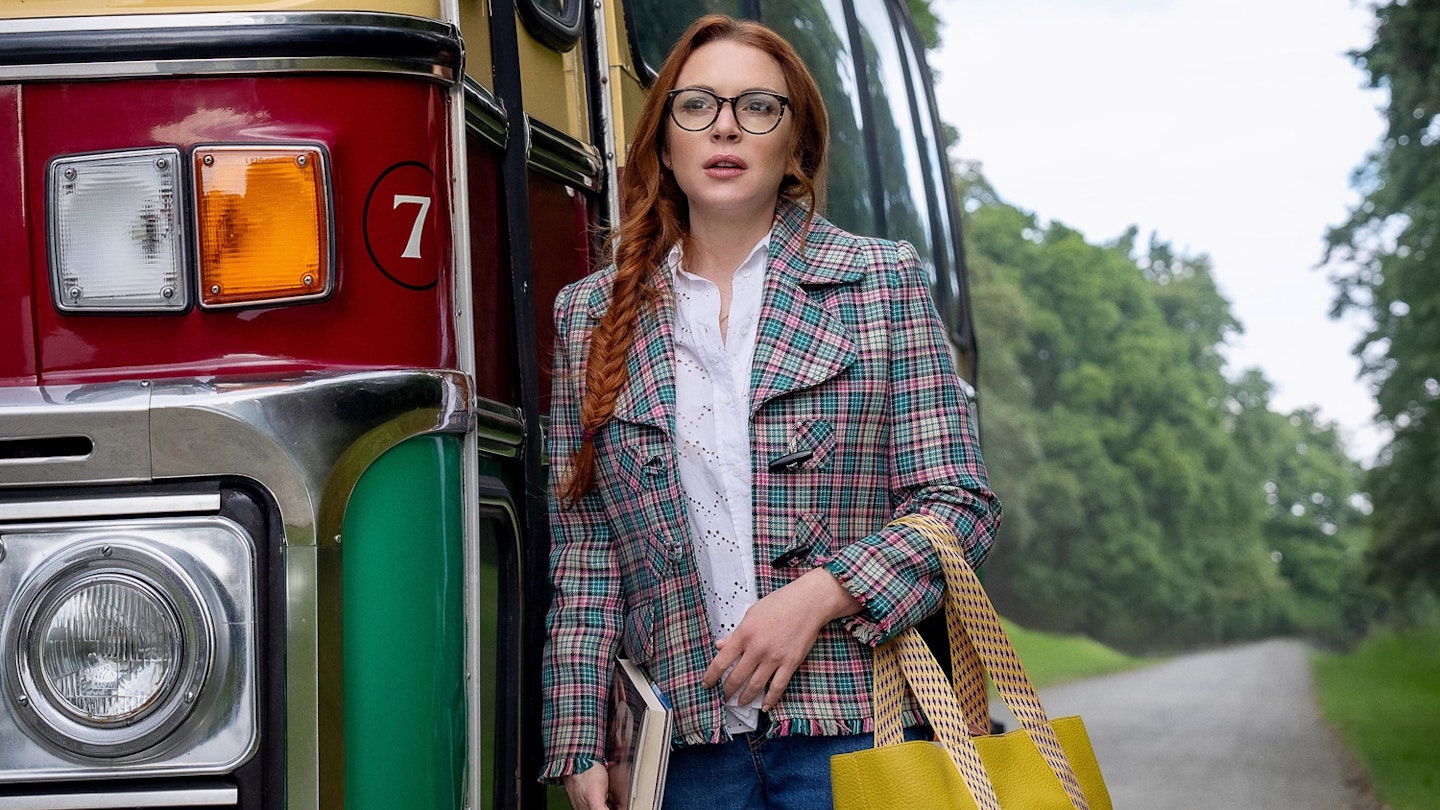What is it about Ireland and terrible American-made romantic comedies? In recent years, the Emerald Isle has been subjected to such cinematic hate crimes as P.S. I Love You, in which Gerard Butler plays a ghost with an atrocity for an accent; Leap Year, in which a character unironically says, “Top o’ the morning!”; and Wild Mountain Thyme, in which Jamie Dornan’s character thinks he is a bee. (On the last, the National Leprechaun Museum was moved to comment: “Even we think this is a bit much.”)
Enter Irish Wish. As with its Irish-romcom forebears, it is chock-full of hoary clichés: establishing shots of rolling fields, fiddle-heavy folk music, a leprechaun-esque fantasy character, some live-laugh-love-esque fetishisation of Guinness, and an array of head-scratching accents (the main Irish character here is in fact played by a Welshman).

But the Ireland setting to this film feels almost peripheral, incidental, even. Irish Wish is, first and foremost, un film de Lindsay Lohan; with this and 2022’s festive-skiing-amnesia flick Falling For Christmas, the actor is re-establishing herself as a Lifetime Movie-esque romcom brand — a second- or third-wind of her career for the generation who grew up with The Parent Trap and Freaky Friday, and would like more of the same. It certainly seems to be channelling the make-believe, fantasy wish-fulfilment logic and goofy family-friendly tone of those films. (Maddie’s line, “I’m marrying Paul Kennedy!” — said at first in shock, then in delight — is this film’s equivalent to Home Alone’s “I made my family disappear!”)
The purpose of this film is really to cement Lohan as the new grand matriarch of this genre, and in that modest quest, it does the job. Never mind that the cultural sensitivity towards its host nation is at about the level of Las Vegas; that the direction is glossier than lip lacquer and cheesier than Stinking Bishop; that the attempts at comedy will make your eyes roll and retreat to the farthest reaches of your skull (there is at least one use of the phrase, “Cheque, please!”).
Irish Wish is not a good film, to be clear.
Here, it’s all about Lohan. Her Maddie is presented as a relatable queen: late thirties, unlucky in love, underappreciated in her career. She likes books, and you can tell that by the fact she wears glasses. Her favourite author is James Joyce, and you can tell that by the fact that she mentions it once. (That particular scene almost perfectly mirrors the “You like fiction books?” scene in romcom spoof They Came Together.)
Desperately sad from her unrequited love of colleague and client Paul (Alexander Vlahos), Maddie is visited by a grotesquely impish apparition of St Brigid of Kildare, who grants her a wish. Without so much as a follow-up question or considering less selfish requests (ah well, next time, world peace!), Maddie immediately wishes herself to be the bride.
Wouldn’t you know it, though — just as her dream comes true, it’s at that point she starts to realise that maybe she’s falling for handsome photographer James, played by Englishman Ed Speleers. (The decision to make her love interest English, incidentally, suggests the 1649 Cromwellian conquest of Ireland never ended — it simply took a different form.) After a visit to a vague approximation of a pub, the pair fall in love over a pint of the black stuff, a lower-decks-of-the-Titanic-style Irish jig, and a spot of darts mansplaining.
You can, of course, quite easily imagine what comes next. Indeed, the whole point of this kind of film is the total lack of surprise — it is precision-designed as a comfort blanket made of trash, to be watched under a fleece throw on the sofa with a hot chocolate, or in the background while you’re doing the ironing. Irish Wish is not a good film, to be clear. On a fundamental filmmaking level, it simply cannot be recommended. But taken on the terms on which it was made — you don’t mess with the Lohan.
